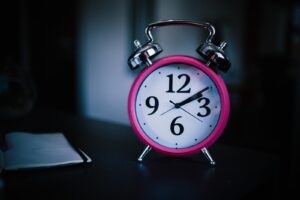Struggling to fall asleep quickly can be frustrating, especially if you find yourself lying awake for hours. Improving the quality of your sleep is important for your overall well-being. Whether you’re dealing with insomnia or simply want to enhance your sleep routine, these practical tips can help you fall asleep faster and enjoy a restful night’s sleep.
Create a Relaxing Bedtime Routine
Establishing a soothing bedtime routine can signal your body and mind that it’s time to unwind. Engage in activities that promote relaxation, such as reading a book, taking a warm bath, or practicing deep breathing exercises. By dedicating a consistent time for these calming activities, you can prepare yourself for a more peaceful slumber.
Maintain a Consistent Sleep Schedule – How to Fall Asleep Fast
Your body functions best with a regular sleep schedule. Try to go to bed and wake up at the same time each day, even on weekends. Consistency helps regulate your internal clock, making it easier to fall asleep at night and wake up in the morning feeling refreshed.
 Create a Sleep-Conducive Environment
Create a Sleep-Conducive Environment
Your sleep environment can greatly impact your ability to fall asleep. Make sure your bedroom is cool, dark, and quiet. Consider using earplugs, an eye mask, or white noise machines to block out any disruptive sounds or lights. Investing in a comfortable mattress and pillow can also contribute to a more comfortable sleep environment.
Minimize Stimulants – How to Fall Asleep Fast
Certain substances can interfere with your ability to fall asleep quickly. Limit your consumption of caffeine and nicotine, especially in the evening. These stimulants can stay in your system for hours and disrupt your sleep. Additionally, avoid heavy meals, spicy foods, and excessive fluid intake close to bedtime, as they can cause discomfort and nighttime trips to the bathroom.
Establish a Wind-Down Routine – How to Fall Asleep Fast
Help your mind and body transition from wakefulness to sleep by establishing a wind-down routine before bed. This can involve engaging in relaxing activities, such as listening to calming music, practicing gentle stretches or yoga, or engaging in meditation or mindfulness exercises. By dedicating time to unwind, you can prepare yourself mentally and physically for a more peaceful sleep.
 Limit Screen Time Before Bed
Limit Screen Time Before Bed
The blue light emitted by electronic devices can suppress the release of sleep-inducing hormones, making it harder to fall asleep. Minimize your exposure to screens, such as smartphones, tablets, and televisions, at least an hour before bedtime. Instead, opt for activities that promote relaxation and restful sleep.
Create a Comfortable Sleep Environment – How to Fall Asleep Fast
Your sleep environment plays a significant role in your ability to fall asleep quickly. Ensure that your bedroom is comfortable, clean, and free from distractions. Choose comfortable bedding, maintain a cool temperature, and use blackout curtains or blinds to create a dark sleep environment. Consider investing in a supportive mattress and pillow that suit your preferences.
Practice Stress Management
High levels of stress and anxiety can interfere with your ability to fall asleep. Find healthy ways to manage stress throughout the day, such as practicing relaxation techniques, engaging in regular exercise, or seeking support from friends, family, or professionals. By reducing stress levels, you can create a calmer state of mind that promotes faster sleep onset.
Avoid Clock Watching
Constantly checking the time while lying in bed can increase anxiety and make it harder to fall asleep. Avoid the temptation to glance at the clock, as it can heighten your awareness of how long it’s taking you to fall asleep. Instead, try using relaxation techniques or focusing on your breath to redirect your attention away from the passing minutes.
Consider Natural Sleep Aids
Certain natural remedies or supplements may aid in falling asleep faster. Discussing these options with a healthcare professional can provide guidance on safe and effective choices. Examples of natural sleep aids include melatonin supplements, chamomile tea, lavender essential oil, and herbal supplements like valerian root or passionflower extract.
Falling asleep quickly and enjoying a restful night’s sleep is essential for your physical and mental well-being. By incorporating these simple tips into your sleep routine, you can create an environment conducive to sleep, establish healthy sleep habits, and improve your overall sleep quality. Remember, consistency and patience are key when it comes to developing healthy sleep habits. If sleep problems persist, it’s important to consult a healthcare professional for further evaluation and guidance.
Leave a Reply